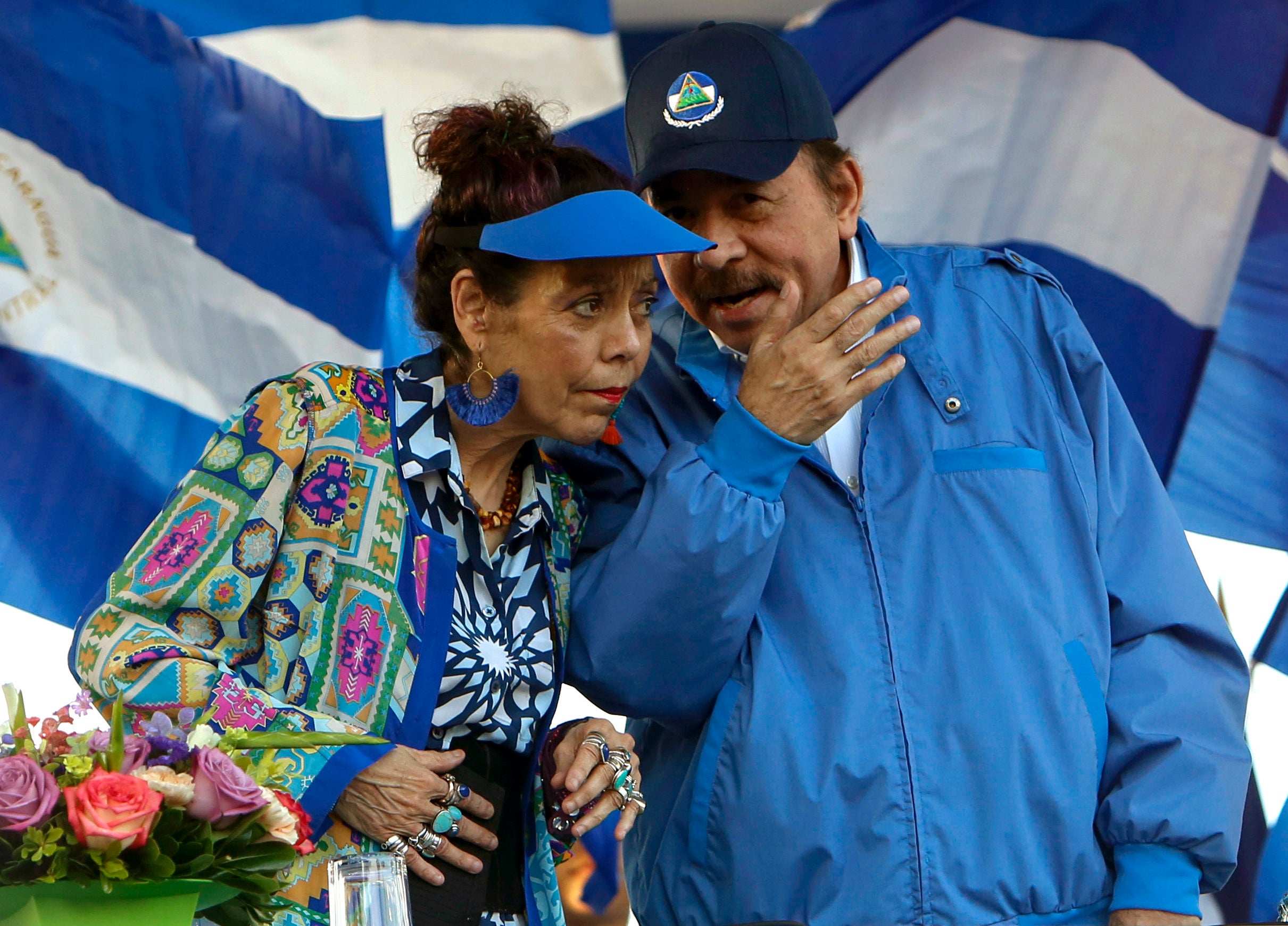Nicaragua creates Ministry of Extraterrestrial Space Affairs
Nicaragua has created a new National Ministry for Extraterrestrial Space Affairs, The Moon and Other Celestial Bodies, which is drawing amused reactions on social media in a nation that has been struggling since anti-government protests in 2018

Your support helps us to tell the story
From reproductive rights to climate change to Big Tech, The Independent is on the ground when the story is developing. Whether it's investigating the financials of Elon Musk's pro-Trump PAC or producing our latest documentary, 'The A Word', which shines a light on the American women fighting for reproductive rights, we know how important it is to parse out the facts from the messaging.
At such a critical moment in US history, we need reporters on the ground. Your donation allows us to keep sending journalists to speak to both sides of the story.
The Independent is trusted by Americans across the entire political spectrum. And unlike many other quality news outlets, we choose not to lock Americans out of our reporting and analysis with paywalls. We believe quality journalism should be available to everyone, paid for by those who can afford it.
Your support makes all the difference.Nicaragua has created a new National Ministry for Extraterrestrial Space Affairs, The Moon and Other Celestial Bodies, which is drawing amused reactions on social media in a nation that has been struggling since anti-government protests three years ago.
The agency was approved by 76 legislators Wednesday in the country’s congress, which is dominated by President Daniel Ortega’s Sandinista Party. Fifteen opposition legislators abstained.
In a country that has a hard time supplying its people with food, fuel and coronavirus vaccines, it is not clear exactly what the ministry is supposed to do.
It will be under the control of the Nicaraguan army, which has no space program. The law says the ministry “will promote the development of space activities, with the aim of broadening the country’s capacities in the fields of education, industry, science and technology.”
Geologist Jaime Incer Barquero, president of Nicaragua's Academy of Geography and History, told CNN: “Nicaragua does not have a scientific capacity or tradition, does not have a serious (space) observatory. We are not scientifically able as a country to undertake this type of research.”
Social media users were quick to create memes of Ortega and his wife, Vice President Rosario Murillo, dressed as astronauts, and of Nicaraguan police expropriating the moon, as Ortega has done with some buildings in Nicaragua that belonged to media outlets and civic groups he disagreed with.
Critics said the country does not have the money to spare for dreams of space exploration. It has yet to acquire any coronavirus vaccines and has been in a deep social and economic crisis since the government quashed mass protests in 2018.
The space agency is not be the first time Ortega has endorsed quixotic proposals. In 2014 he authorized a Chinese company to build a $50 billion canal across Nicaragua. The project has made little headway.
Human rights organizations, meanwhile, said Thursday that they will demand a “strong resolution” on Nicaragua's human rights situation at the Feb. 22 opening session of the U.N. Human Rights Council.
“Violations of human rights continue in Nicaragua, and they require a mission to visit the country and make recommendations for overcoming this challenges, and for the county to return to normality before the elections” next fall, said Clément Nyaletsossi Voule, the U.N. special investigator on the rights to peaceful assembly and association.
National elections are scheduled for Nov. 7. Ortega is expected to run for his fourth term as president. If he wins, it would be his third consecutive term since 2007.
In recent months, Ortega’s government has proposed, passed and implemented a number of laws making it more difficult for nongovernmental organizations to operate.